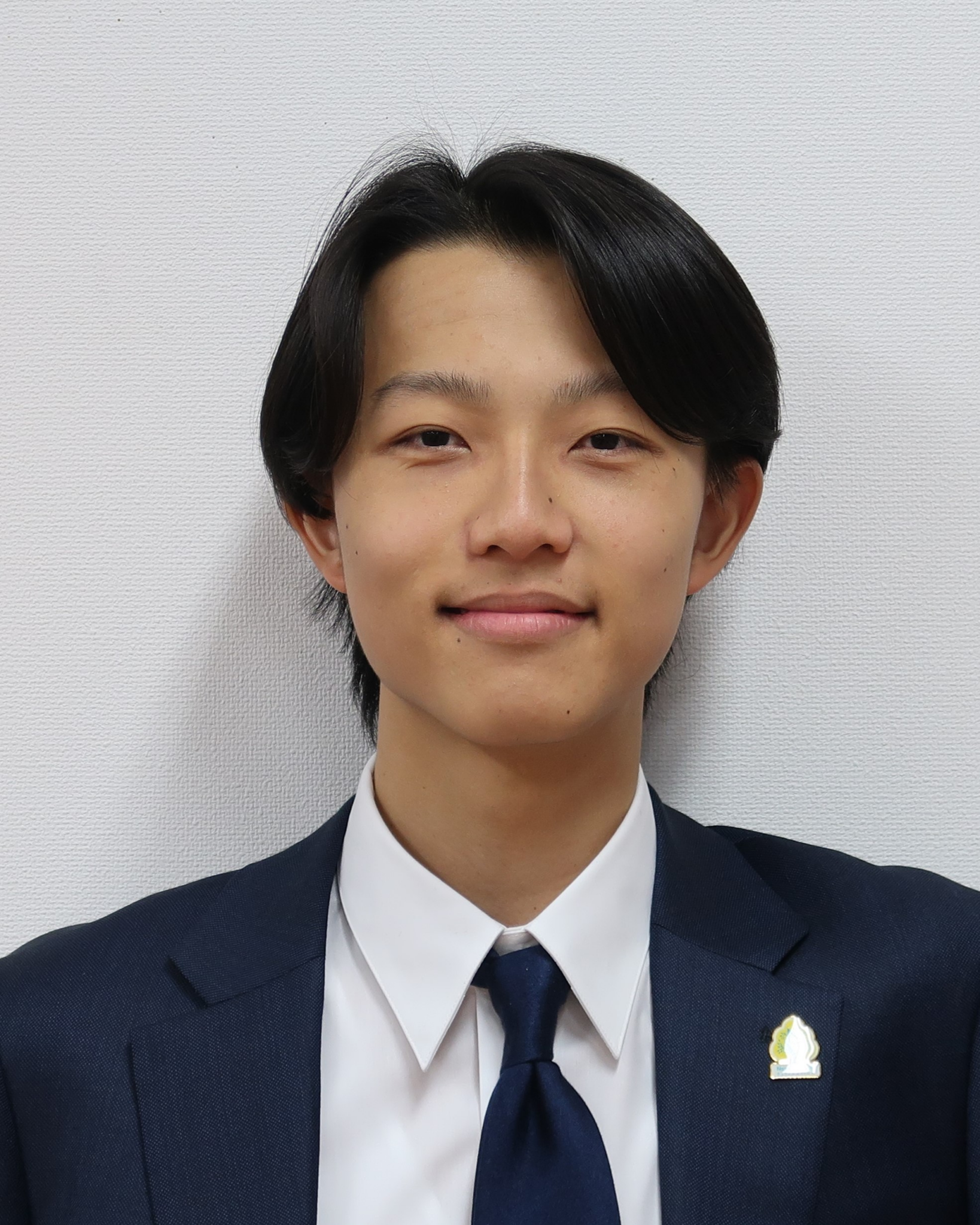
Haru Imamura / School of Global Humanities and Social Sciences, Nagasaki University
HARU IMAMURAHello everyone. My name is Haru Imamura, a second-year student at the School of Global Humanities and Social Sciences, Nagasaki University. I am from Kumamoto Prefecture and came to Nagasaki when I entered university. I realized that my knowledge and awareness of nuclear weapons issues were limited compared to students from Nagasaki. Through my studies on nuclear weapons, learning about the realities of the atomic-bombed cities, and understanding the horror of nuclear weapons, I have come to strongly believe in the importance of considering this issue as our own responsibility and taking action. As opportunities to hear directly from atomic bomb survivors become increasingly rare, I believe it is our mission as the younger generation to carry on their voices and work for peace. In a world facing the constant threats of war and nuclear weapons, including the Israeli- Palestinian conflict, I aspire to build a society where these issues are not seen as someone else’s problem but as issues that affect us all. As a member of the Nagasaki Youth Delegation, I am committed to deepening my understanding of nuclear abolition and creating opportunities for dialogue by sharing information both in Japan and internationally. I am determined to widen the circle of activities and spread the preciousness of peace to the world, especially by working together with the younger generation. Thank you very much for your support.
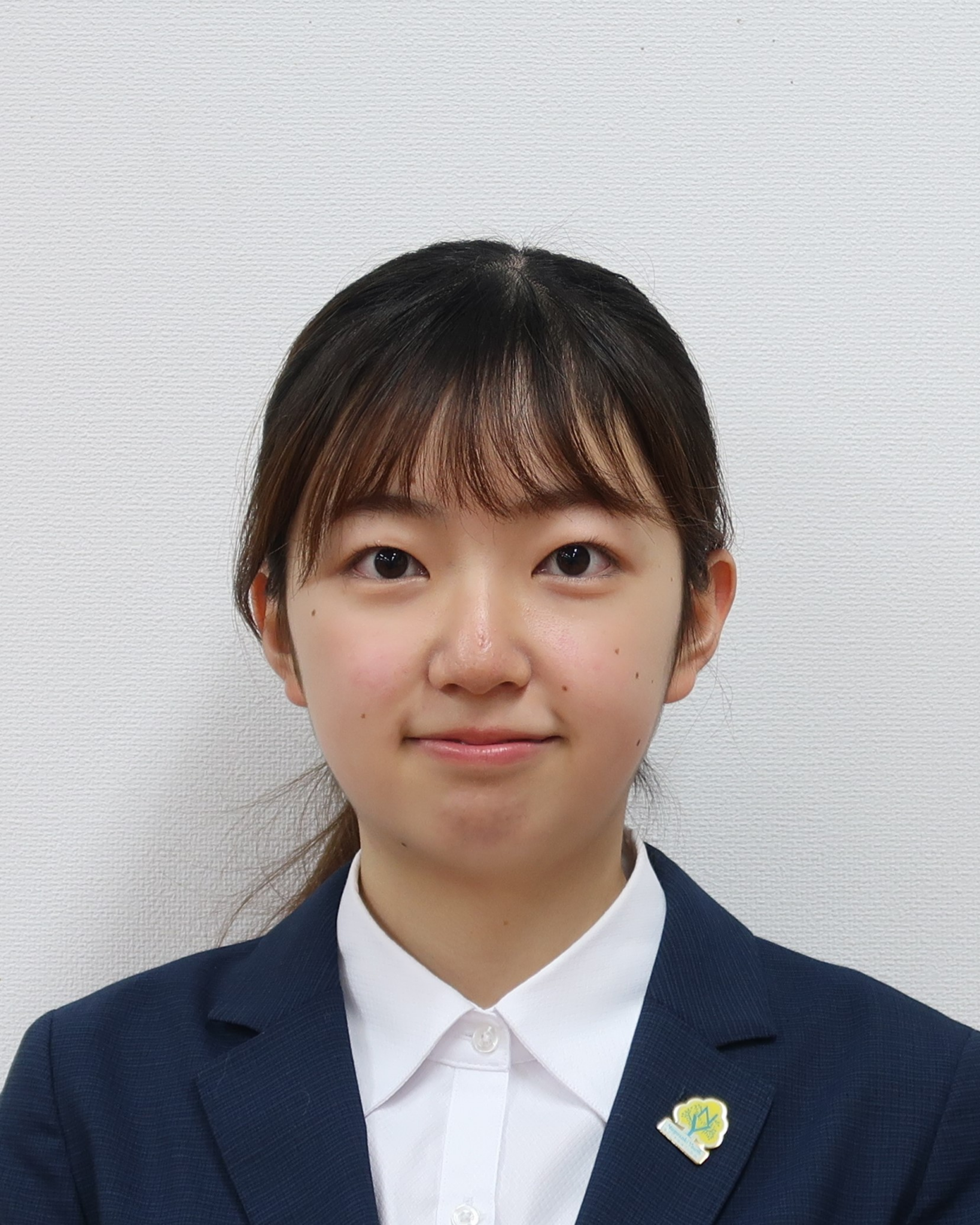
Hikari Katsuki / Faculty of Economics, Nagasaki University
HIKARI KATSUKIHello everyone, my name is Hikari Katsuki, and I am a first-year student in the faculty of Economics at Nagasaki University. I am originally from Nagasaki, but I moved to Fukuoka during my elementary school years. It was during this time that I became acutely aware of the difference in attitudes towards the atomic bomb and peace. After returning to Nagasaki, I continued my studies on peace, and through this, I came to believe that it is crucial to share the harsh reality of nuclear weapons and the need for their abolition with as many people as possible in order to achieve a peaceful society.
This past summer, I had the opportunity to visit South Korea as part of the Japan-Korea Youth Exchange Program. While there, I visited sites where the Japanese had forced Koreans into labor during the Pacific War,. I also had the opportunity to listen to the stories of local residents about their wartime experience. Learning about the war from a perspective outside of Japan allowed me to understand new facts and emotions surrounding the war. Through this experience, I realized that looking at and understanding peace from multiple angles is essential to resolving issues related to war and nuclear weapons.
As a representative of the Nagasaki Youth Delegation, I look forward to learning a great deal through activities such as preparatory study sessions with my peers and attending international conferences. I intend to share the knowledge and insights I gain, as well as the current state of nuclear issues, through presentations, social media, and outreach programs. As we approach the 80th anniversary of the end of World War Ⅱ this year, I am committed to doing my utmost to expand the circle of peace from Nagasaki to Japan and the world.
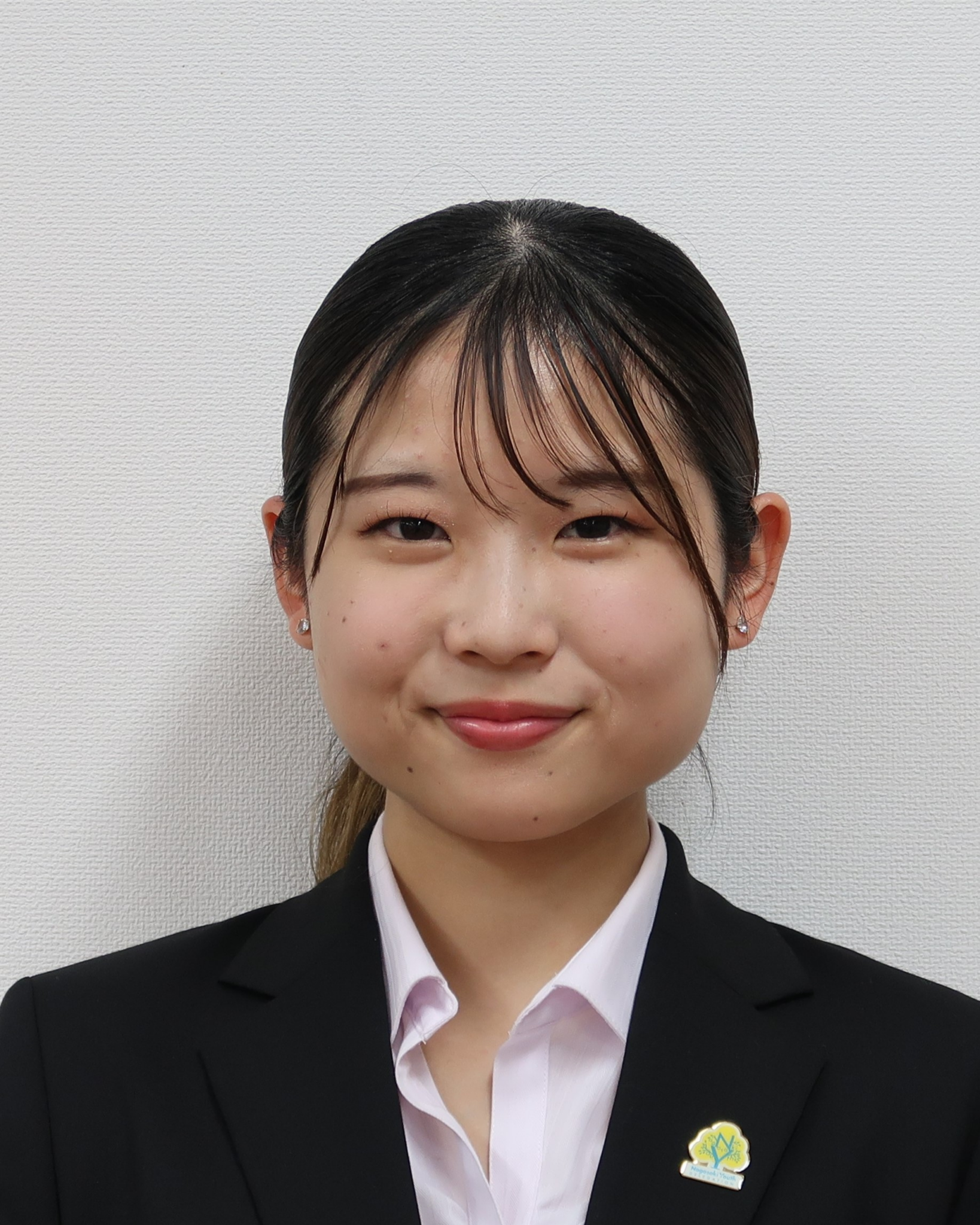
Karin Kawagoe / Faculty of Economics, Nagasaki University
KARIN KAWAGOEHello everyone. My name is Karin Kawagoe, a second-year student at Nagasaki University’s Faculty of Economics. I am from Miyazaki and came to Nagasaki when I entered university.
Nagasaki is a special place for me because it taught me important things. I did not get the results I wanted in the university entrance examinations, and when I first entered Nagasaki University, I spent many days feeling regretful and apathetic. However, I made up my mind to “look forward and not use the environment as an excuse,” and began to take on new challenges, such as touring Nagasaki’s towns, working part-time, and participating in club activities. In the process, I came into contact with the warmth of the Nagasaki people and the charm of the region, and gradually came to love this place. I learned that by opening my heart and trying to know others, I could learn many things and understand each other deeply. My experience in Nagasaki has helped me to grow and to develop a desire to give back. The Nagasaki Youth Delegation is an opportunity for me to give shape to my interest in nuclear and peace issues. It is not something to be taken for granted, but something to be deeply appreciated, that the hibakusha continue to share their painful and sad experiences beyond imagination for the sake of world peace for those of us who will live in the future. I strongly hope to inherit their thoughts and feelings and contribute to peace as a member of the Youth Delegation.
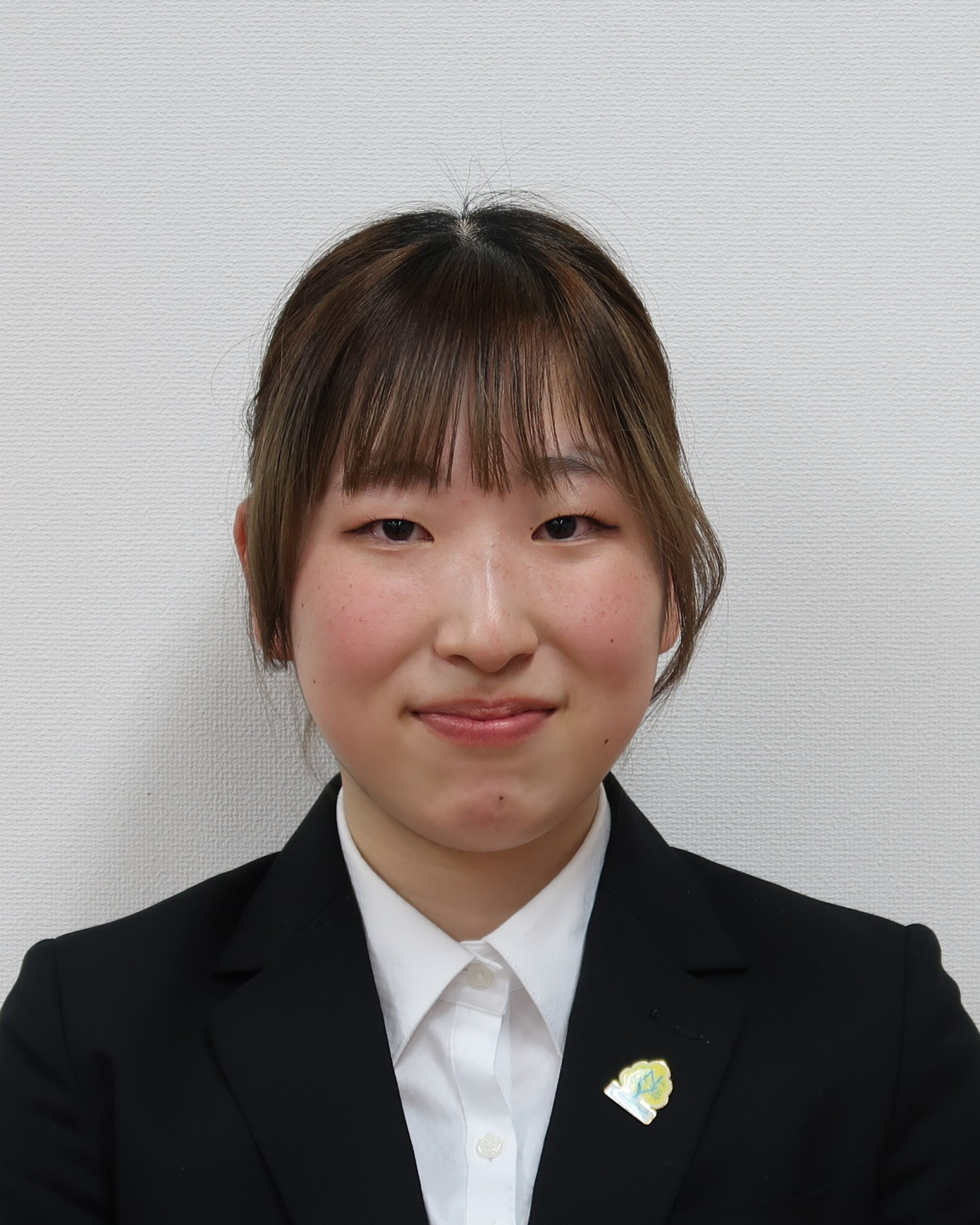
Sakurako Tominaga / School of Global Humanities and Social Sciences, Nagasaki University
SAKURAKO TOMINAGAHello everyone. I was born in Fukuoka Prefecture and grew up in Nagasaki Prefecture. For the past 12 years, from elementary school through high school, I have studied peace every year, but mostly in a passive way. Until now, even though I had a desire to engage in peace activities, I had never had the opportunity to discuss it with those around me, nor did I have the courage to take action on my own. However, after entering Nagasaki University, I began to actively study peace and became active in the first term of the Peace Education Laboratory, and in Vol. 2, I took on the role of supporting the second term students as a mentor. I would like to contribute to the great goal of nuclear abolition, even if only in a small way, by communicating its history and values from the standpoint of a university student. Although my power alone may be slight, I am sure that I will be able to realize that I am not powerless. I look forward to deep discussions with like-minded delegates through our activities in the Nagasaki Youth Delegation. I would also like to act steadily so as not to neglect the act of “knowing,” which is at the root of these activities.
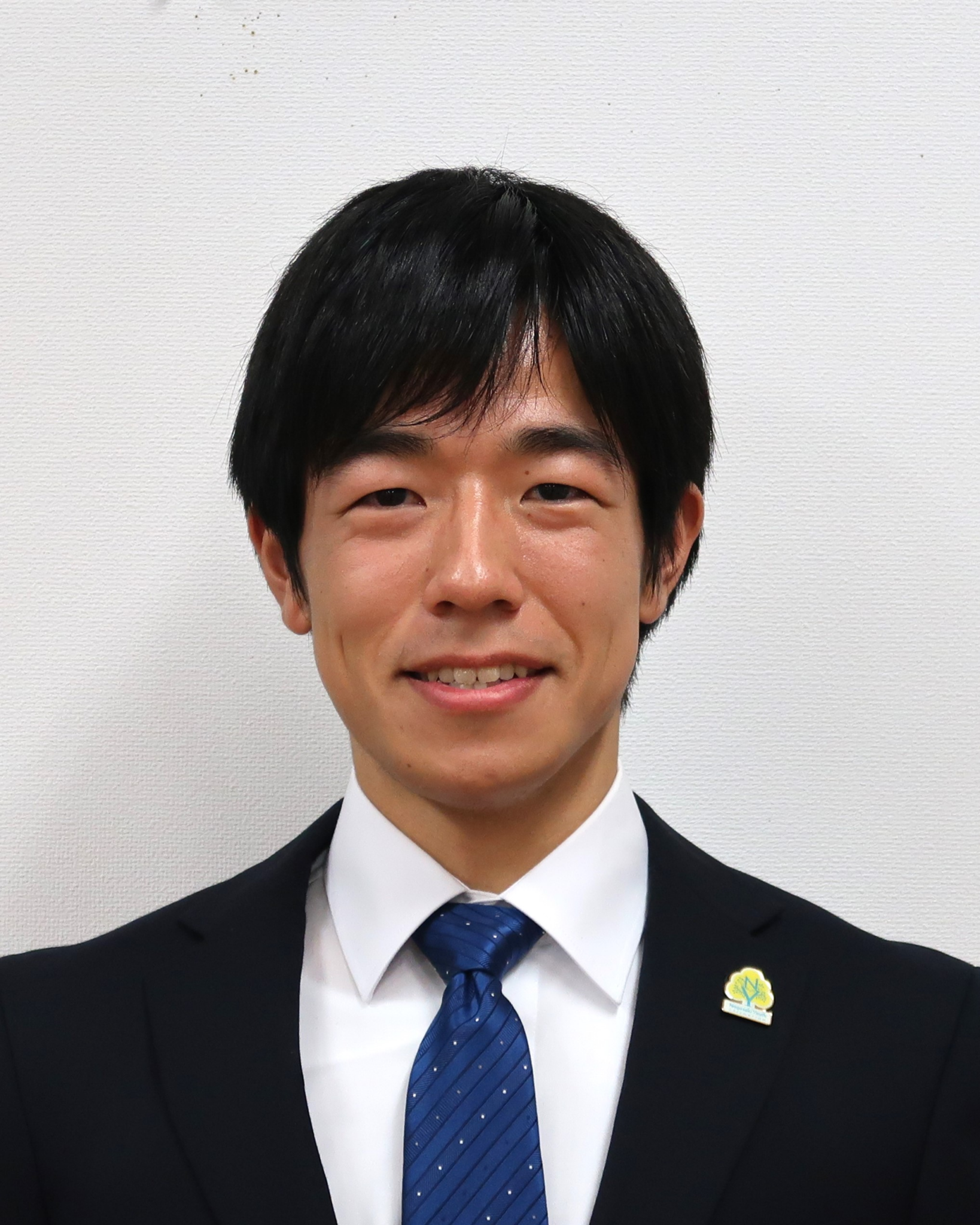
Shohei Hamada / School of Global Humanities and Social Sciences, Nagasaki University
SHOHEI HAMADAMy name is Shohei Hamada, a first-year student in the Faculty of Global Humanities and Social Sciences at Nagasaki University. I was born and raised in Nagasaki Prefecture and have been learning peace studies since elementary school. Since I was in the first year of junior high school, I have been interested in peacebuilding, especially nuclear disarmament, and I have studied about the atomic bombing of Nagasaki on my own during summer vacations and participating in training programs outside of school. Since entering high school, I have been a member of the Peace Volunteers of the Nagasaki Peace Promotion Association, learning about the reality of the atomic bombing and peace, and continuing to share this knowledge with many people.
As a member of the Nagasaki Youth Delegation, I would like to focus on two things. First, I would like to actively communicate with people around the world and let them know about the damage caused by the atomic bomb in Nagasaki. I would like to share with the people of the world not only what I have learned so far, but also what I will learn as a member of the Nagasaki Youth Delegation, and appeal for the abolition of nuclear weapons. Second, I would like to learn more about how people around the world think about nuclear weapons. I have heard what the people of Nagasaki think about nuclear weapons, but by coming into contact with people from other countries, who were born and raised in different places, environments, and cultures, I would like to learn about various ways of thinking about nuclear weapons and take action for the abolition of nuclear weapons from a broader perspective.
Thank you.
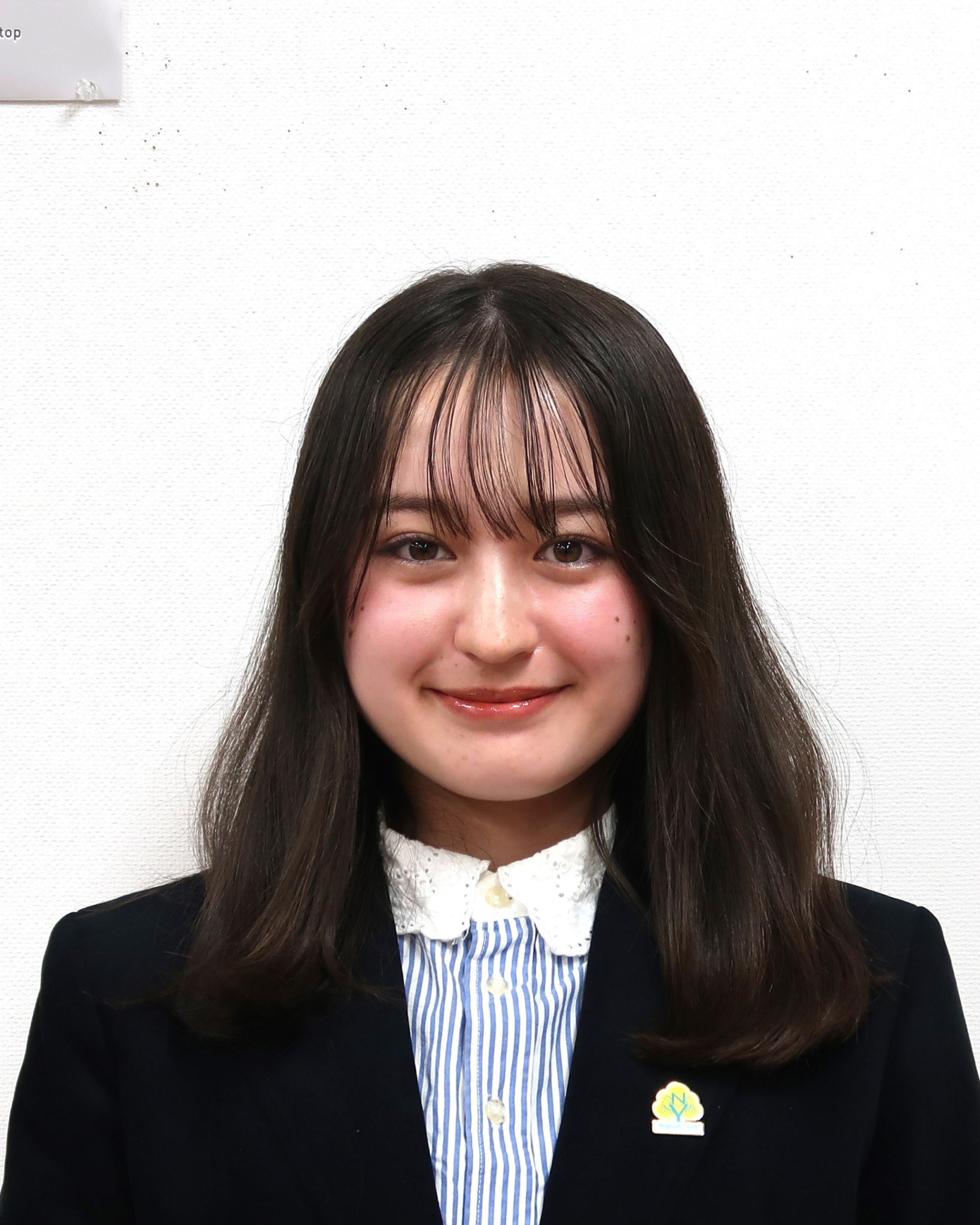
Nina VanderVeen / School of medicine& Atomic Bomb Disease Institute (ABDI)
NINA VANDERVEENHello everyone. My name is Nina VanderVeen, a first-year student at Nagasaki University School of Medicine. I was born and raised in Nagasaki, and after graduating from Seiun High School, I entered Nagasaki University. Growing up, I listened to the voices of my grandparents, who were hibakusha, survivors of the atomic bombing, and who expressed their deep desire that such a tragedy should never be repeated. This experience instilled in me a strong sense of responsibility to convey their voices, and motivated me to engage in peace-related activities since high school. I participated in a petition drive to collect 10,000 signatures, and engaged in discussions with peace activists from outside the prefecture and abroad, deepening my understanding of what we could do to make a difference. One culmination of my efforts was my participation in a national oratorical contest during high school. Competing alongside speakers from across the country, I focused on how to effectively communicate the feelings of the hibakusha to the nation, and how to move the hearts of a large audience. Under the guidance of my teachers, I honed my skills through rigorous practice and competition, ultimately winning the national championship in my third year of high school. I take great pride in my “ability to communicate,” which I attribute to the effort and dedication I put into my work. I hope to use this ability to engage in dialogue with a wide range of experts both in Japan and abroad, conveying the voices of the hibakusha to people across the country and around the world. Currently, I am affiliated with the Atomic Bomb Disease Institute (ABDI) and plan to contribute to research on the effects of radiation on the human body. As a medical student, I am committed to advancing my knowledge and contributing to this important work. I am determined to do my utmost to help create a “nuclear-free world,” where future generations can live in peace and security.
